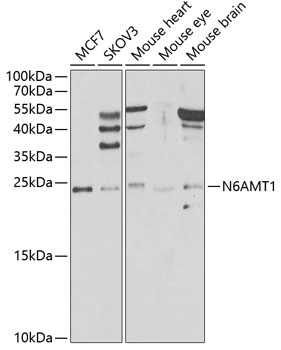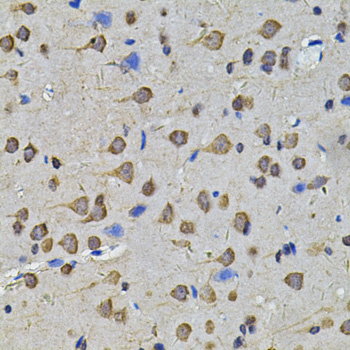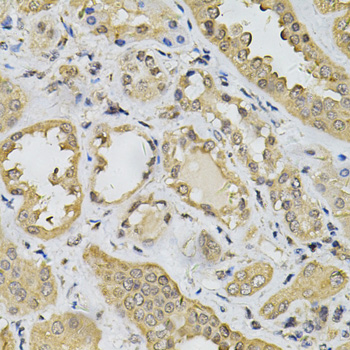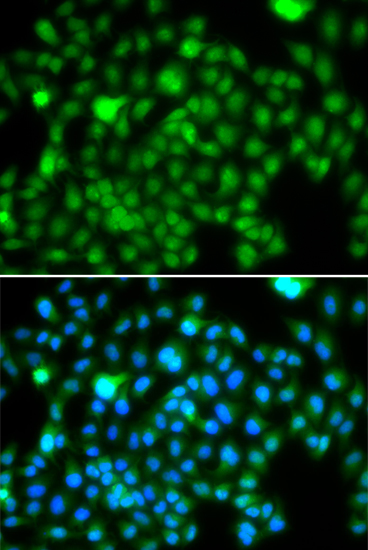-
Product Name
N6AMT1 Polyclonal Antibody
- Documents
-
Description
Polyclonal antibody to N6AMT1
-
Tested applications
WB, IHC, IF
-
Species reactivity
Human, Mouse, Rat
-
Alternative names
N6AMT1 antibody; C21orf127 antibody; HEMK2 antibody; MTQ2 antibody; N6AMT antibody; PRED28 antibody; m.HsaHemK2P antibody; hemK methyltransferase family member 2 antibody
-
Isotype
Rabbit IgG
-
Preparation
Antigen: Recombinant fusion protein containing a sequence corresponding to amino acids 1-186 of human N6AMT1 (NP_877426.3).
-
Clonality
Polyclonal
-
Formulation
PBS with 0.02% sodium azide, 50% glycerol, pH7.3.
-
Storage instructions
Store at -20℃. Avoid freeze / thaw cycles.
-
Applications
WB 1:500 - 1:2000
IHC 1:50 - 1:200
IF 1:50 - 1:100 -
Validations

Western blot - N6AMT1 Polyclonal Antibody
Western blot analysis of extracts of various cell lines, using N6AMT1 antibody at 1:1000 dilution._Secondary antibody: HRP Goat Anti-Rabbit IgG (H+L) at 1:10000 dilution._Lysates/proteins: 25ug per lane._Blocking buffer: 3% nonfat dry milk in TBST._Detection: ECL Enhanced Kit ._Exposure time: 90s.

Immunohistochemistry - N6AMT1 Polyclonal Antibody
Immunohistochemistry of paraffin-embedded rat brain using N6AMT1 Antibody at dilution of 1:100 (40x lens).

Immunohistochemistry - N6AMT1 Polyclonal Antibody
Immunohistochemistry of paraffin-embedded human kidney using N6AMT1 Antibody at dilution of 1:100 (40x lens).

Immunofluorescence - N6AMT1 Polyclonal Antibody
Immunofluorescence analysis of A549 cells using N6AMT1 antibody . Blue: DAPI for nuclear staining.
-
Background
Methyltransferase that can methylate both proteins and DNA, and to a lower extent, arsenic. Catalytic subunit of a heterodimer with TRMT112, which catalyzes N5-methylation of Glu residue of proteins with a Gly-Gln-Xaa-Xaa-Xaa-Arg motif (By similarity). Methylates ETF1 on 'Gln-185'; ETF1 needs to be complexed to ERF3 in its GTP-bound form to be efficiently methylated. Also acts as a N(6)-adenine-specific DNA methyltransferase by mediating methylation of DNA on the 6th position of adenine (N(6)-methyladenosine). N(6)-methyladenosine (m6A) DNA is significantly enriched in exonic regions and is associated with gene transcriptional activation. May also play a role in the modulation of arsenic-induced toxicity by mediating the conversion of monomethylarsonous acid (3+) into the less toxic dimethylarsonic acid. It however only plays a limited role in arsenic metabolism compared with AS3MT.
Related Products / Services
Please note: All products are "FOR RESEARCH USE ONLY AND ARE NOT INTENDED FOR DIAGNOSTIC OR THERAPEUTIC USE"
